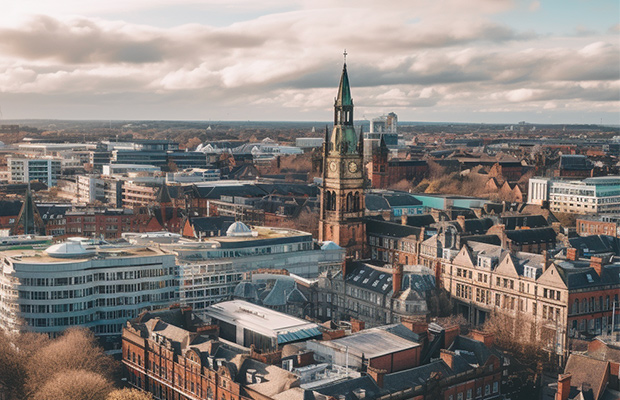Role Characteristics
- Check prescriptions for errors, ensuring they're appropriate and safe for the individual patient
- Do annual medication reviews for patients in GP practices
- Provide education to patients and other healthcare professionals on medicines management
- Provide advice on the dosage of medicines and the most appropriate form of medication, which could be by tablet, injection, cream or inhaler
- Liaise with doctors about prescriptions and medication choice
- Being at the cutting edge of novel research into medicine and healthcare
Skills
- Active listening
- Advice giving
- Attention to detail
- Using data
- Using technology
- Customer service
Day in the life
Watch this video to learn about the role of a Pharmacist.
Routes into this role
Here are some example routes that can lead into this role.
- GCSEs
- A-Levels
- Undergraduate degree
- Postgraduate degree
How to become
To become a Pharmacist you will normally need 5 GCSES followed by 3 A Levels.
You will need to do a 4 year undergraduate masters degree accredited by the GPhC (MPharm), followed by a 1 year Foundation Training Year in practice
After your Foundation Training Year, you will sit a General Pharmaceutical Council (GPhC) examination to become registered as a pharmacist.
The entry requirements for a GPhC-accredited MPharm degree vary between universities. However, as a guide, you might be expected to have A-B grade A-levels in chemistry and two further A-levels in either biology, mathematics, or physics. If you have A-levels in chemistry and biology, you may also be considered with an alternative third subject.
If you would like to pursue a career as a pharmacist, but do not have the required A-level grades or subjects, you might consider undertaking a GPhC-accredited foundation degree as an alternative route to enter an MPharm degree.
Where can this role lead
No matter what role you start in or where you are in your career path, there are always opportunities to develop and progress in healthcare.
In clinical pharmacy you can progress to being an Advanced Clinical Pharmacist working in primary care (GP surgeries) or secondary care (NHS hospitals) where can you specialise in a clinical area. This can lead to further development in to becoming a Consultant Pharmacist, where you would be an expert in your field, leading on clinical practice, research, management, and education.
In community pharmacy, there may be opportunities to progress to branch and then district manager roles. At the most senior level you could be working as a Pharmacy Superintendent, influencing the running of the business, and contributing to overall strategy, with responsibility for many Pharmacists. There are also opportunities to move into management roles in areas such as business or professional development.
You can also work in academia, the pharmaceutical industry or become a policy maker for national bodies and influence national decision making for the government and the NHS.
Location
-
Hospitals
-
Pharmacies
-
Community Settings
-
GP Practices
-
Armed Forces
-
Care Homes
-
Laboratories
-
Prisons
Working hours
-
Nights
-
Weekdays
-
Weekends
-
Part Time
-
Full Time
-
Casual Hours
-
Flexible Hours
-
Overtime
Leeds Opportunities


Undergraduate Degree courses in Pharmacy
- Organisation
- UCAS
Pharmacy Apprenticeships
- Organisation
- UCAS
Leeds City College Health and Social Care courses
- Organisation
- Leeds City College
Volunteering in Health and Care
- Organisation
- Volunteering Opportunities